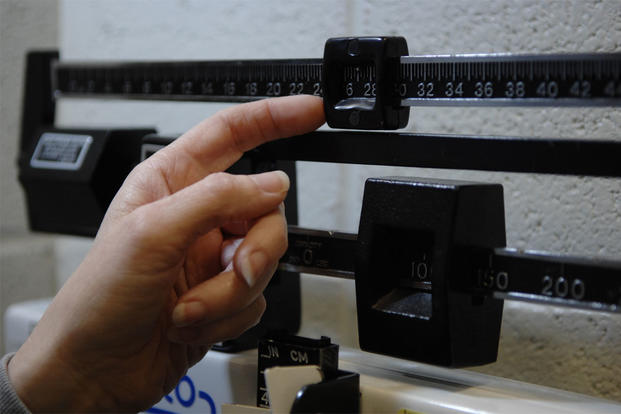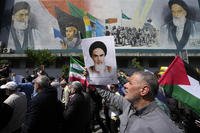Service members' waistlines are wider than ever, and the three-star director of the Defense Health Agency says she is concerned -- but only from a health perspective.
Speaking to reporters in Washington, D.C., on Thursday morning, Navy Vice Adm. Raquel Bono said she had no reason to believe rising percentages of obese troops are creating a readiness crisis in the military.
"We don't have any indication that this is impacting readiness, and I would go out on a limb and say that that is one of the hallmarks of being in the military -- is that we're always ready," she said.
Military Times reported in September that almost eight percent of active-duty service members are now clinically overweight, up from just 1.6 percent in 2001. Some 2.3 percent of troops meet the definition for obesity, the outlet reported.
Bono said it isn't clear what is making service members fatter than ever, but noted that the military is a microcosm of American society, where the growing obesity epidemic is well-documented.
"Our level of activity has changed. I think our eating habits have changed," she said. "I think there are any number of reasons. The neat thing about this is, in the military we have an opportunity to impact most of the things we think are contributing to this."
Bono mentioned initiatives in military chow halls and dining facilities aimed at bringing in healthier food choices. Some chow halls already use a "stoplight" system, with green indicators to highlight optimal food choices and yellow or red signs to indicate food with higher salt, sugar and fat content.
Military morale, welfare and recreation programs are also providing more activities to encourage troops to be active, Bono said.
"It really is a collective-type endeavor," she said. "I want to make sure our policies allow people to get the kind of advice and care that they need."
But getting troops to take advantage of services and health aids, especially for prevention, remains a challenge without a clear solution.
Bono noted that care providers have a wealth of information they can share with troops, from personal data such as body mass index and blood sugar to the science behind healthy lifestyle choices. But no program is mandatory across the total force to help troops maintain a healthy weight.
"I don't necessarily have a forcing function I could use," she said. "But I am interested in finding out what might work in other areas."
-- Hope Hodge Seck can be reached at hope.seck@military.com. Follow her on Twitter at@HopeSeck.




























